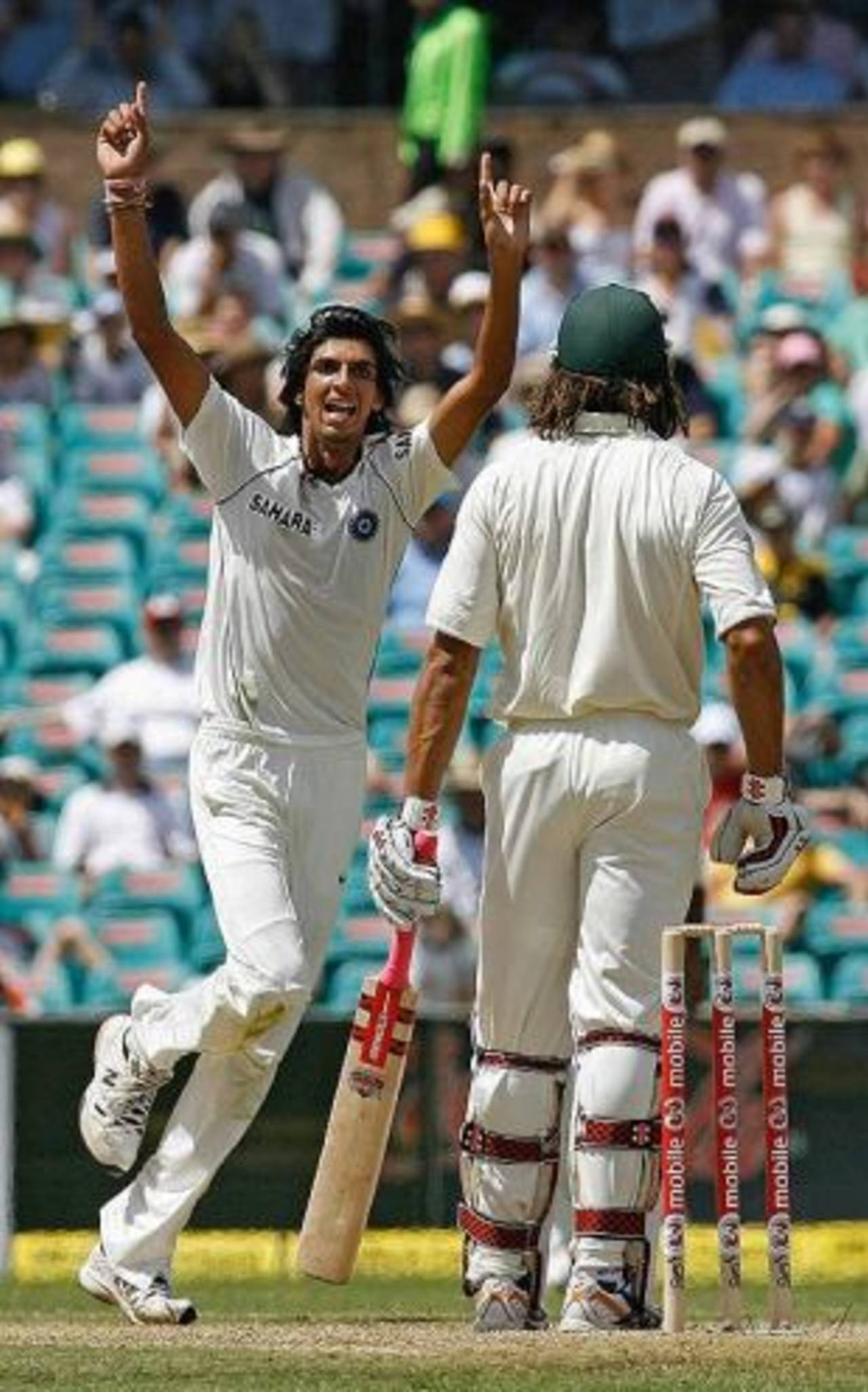Australia maintain DRS resolve
Australia will push for the right to enforce umpire decision reviews in its home matches, despite continued Indian opposition.

Andrew Symonds' escape in the 2008 Sydney Test hastened the introduction of DRS, but India now oppose its use. • AFP
Daniel Brettig is an assistant editor at ESPNcricinfo